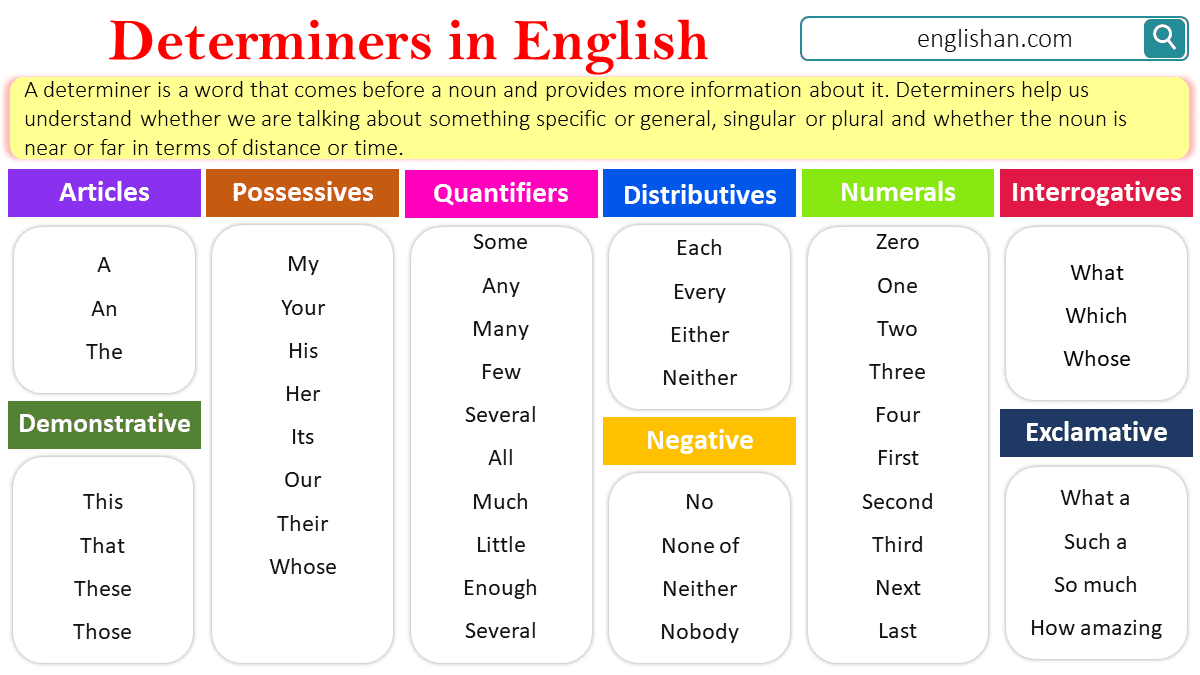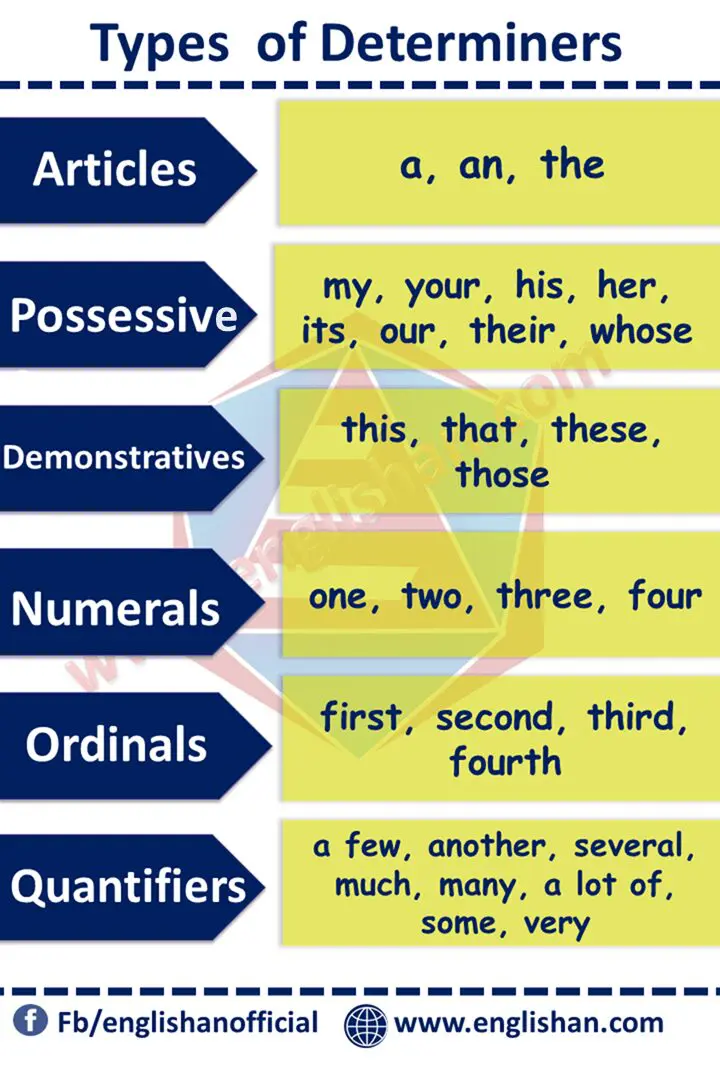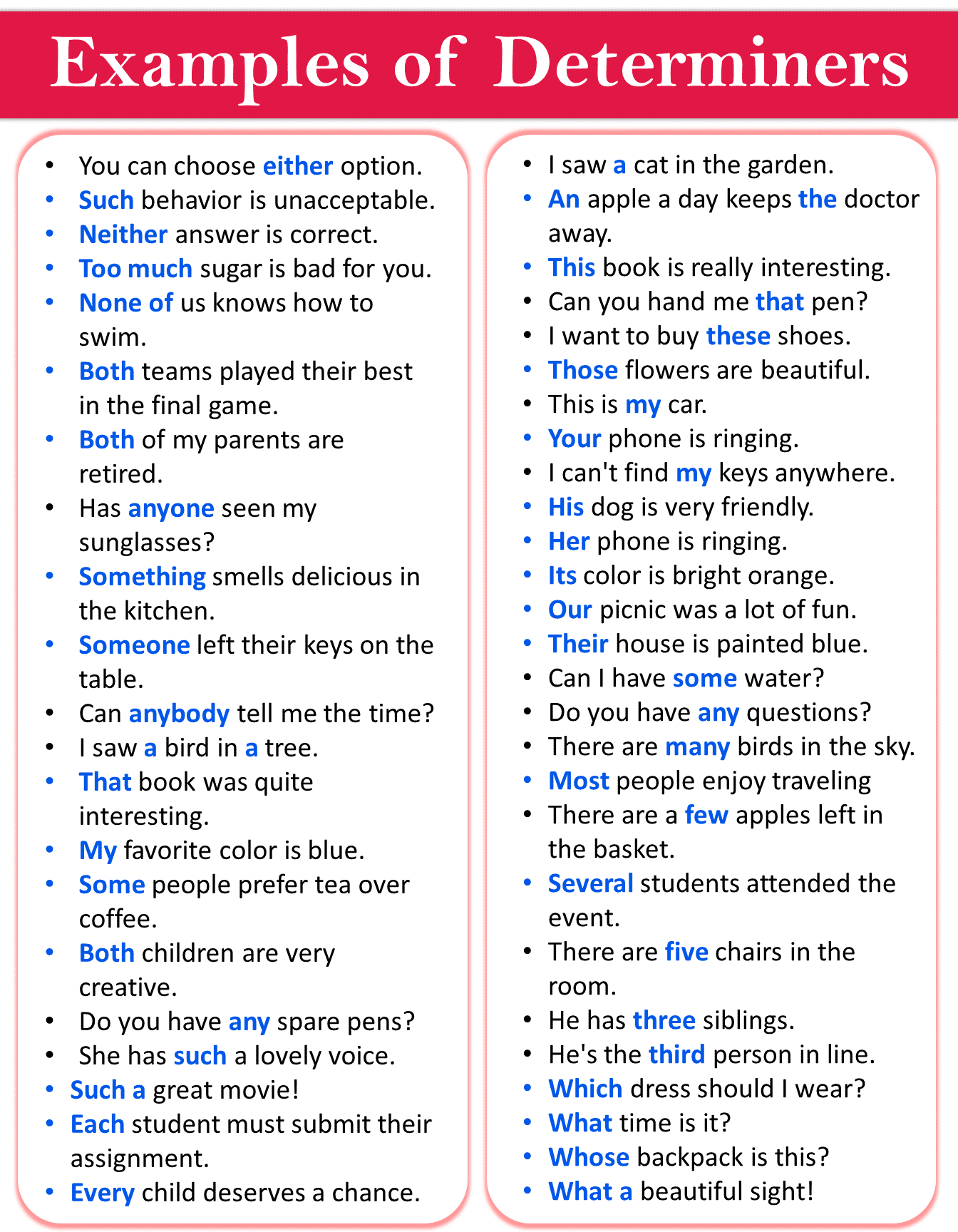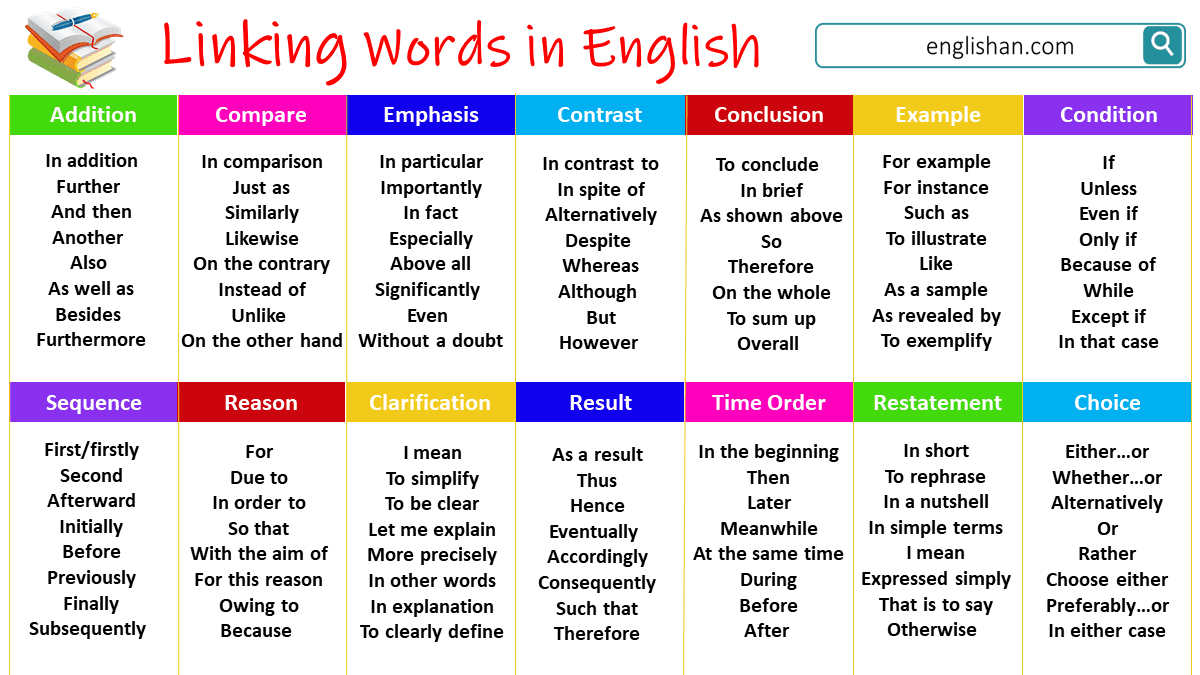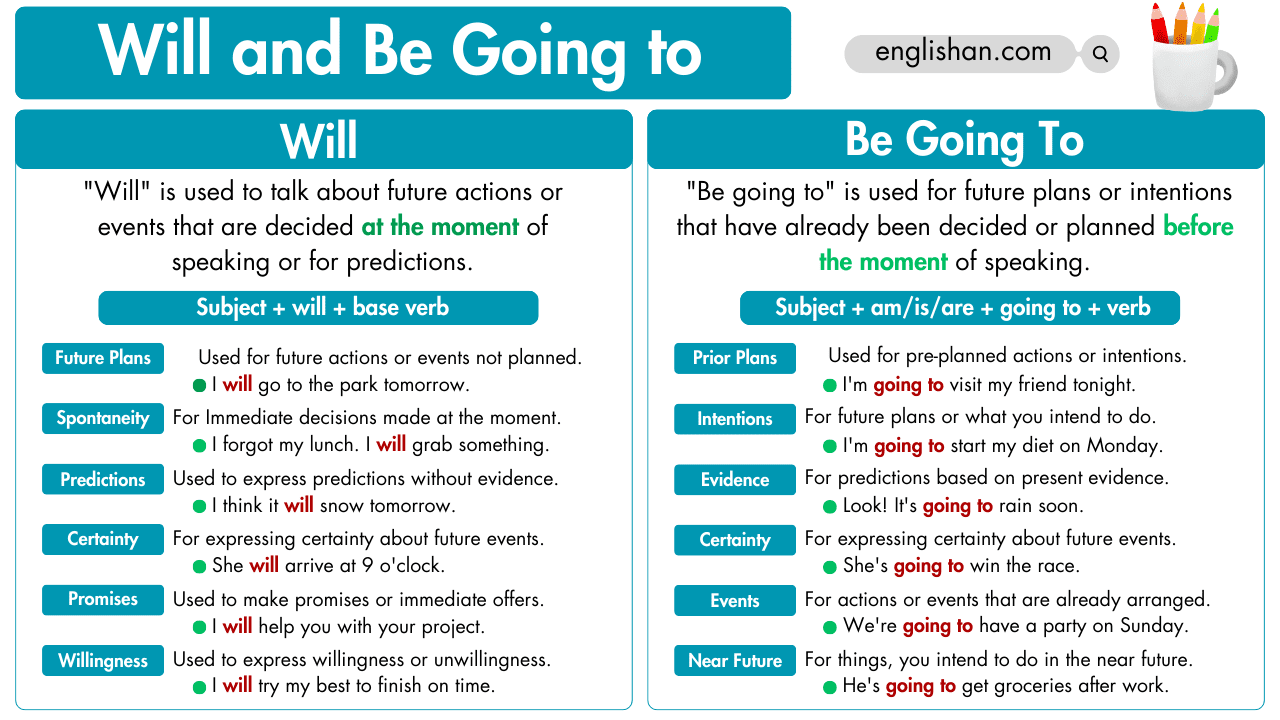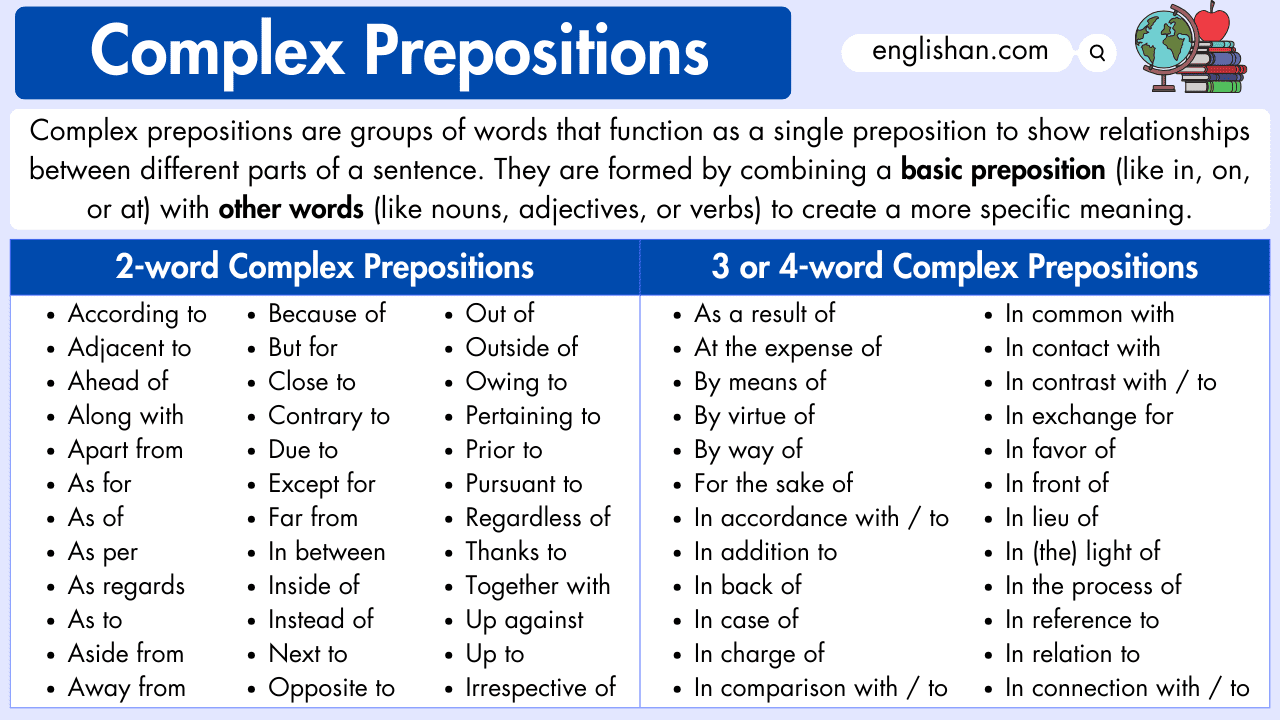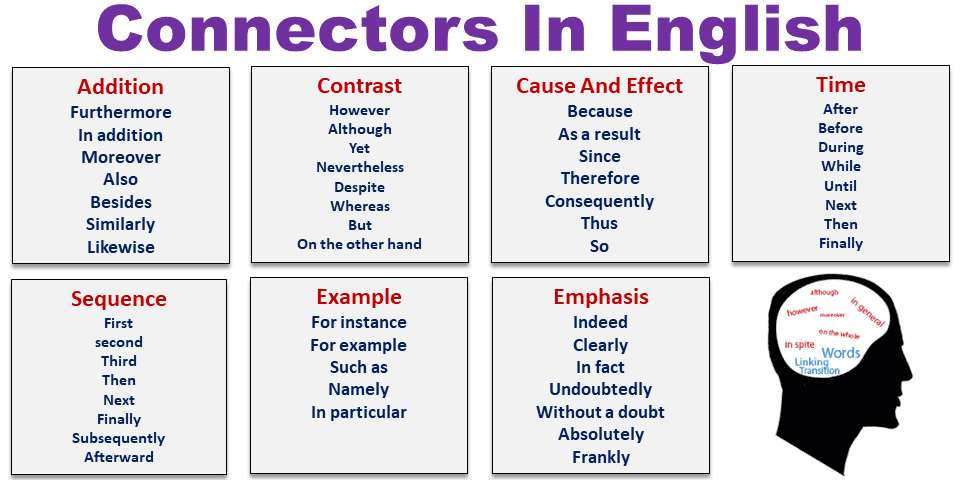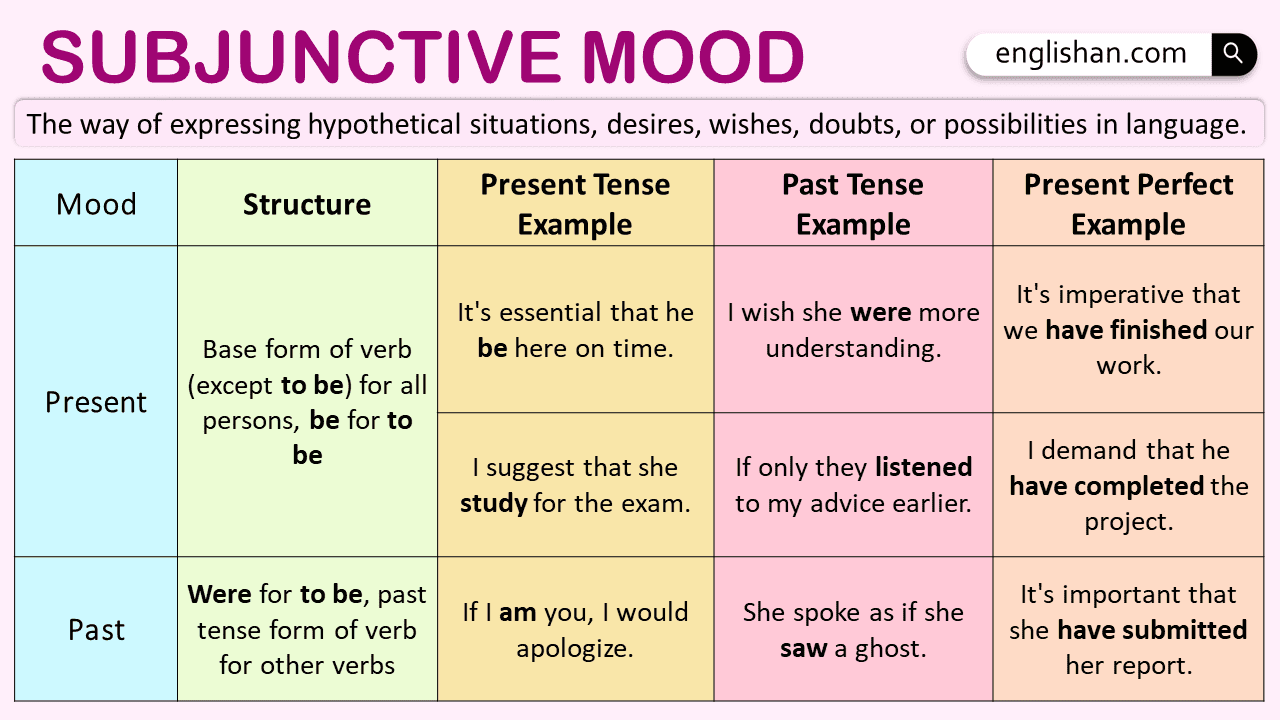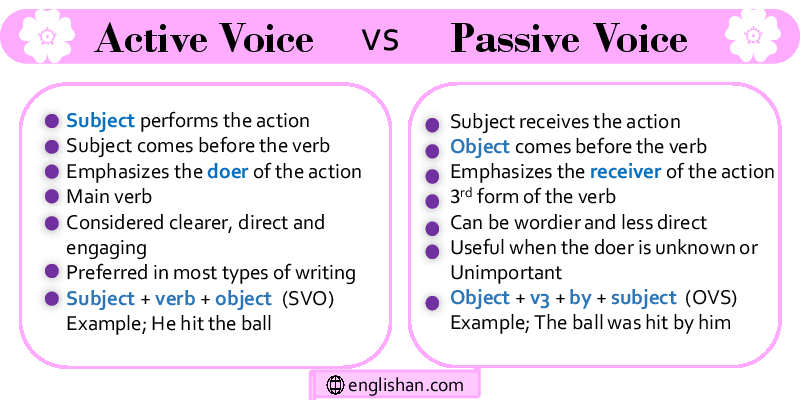Contents
Determiners are key elements in English grammar that help specify nouns in sentences. They clarify whether we are referring to something specific or general. Understanding their types—articles, demonstratives, possessives, and quantifiers—enhances sentence clarity. This post helps learn how to use determiners correctly in different contexts.
What is a Determiner?
A determiner is a word that comes before a noun and provides more information about it. The primary function of determiners is to provide information about the number, specificity, and relationship between the speaker and the noun. Determiners help us understand whether we are talking about something specific or general, singular or plural and whether the noun is near or far in terms of distance or time.
Examples:
- I watch the movie. (Refers to a specific movie known to the listener.)
- I saw a bird. (Refers to an unspecified bird.)
What Do Determiners Do?
Determiners answer questions like:
- Which one? (the, this, that, my, your, etc.)
- How many? (some, many, few, much, several, etc.)
They help clarify the reference, quantity, and possession of a noun in a sentence.
Rules for Using Determiners
Required for Singular Nouns:
Singular countable nouns must have a determiner.
- Example: I need a pen.
Optional for Plural & Uncountable Nouns:
Plural and uncountable nouns can be used without a determiner.
- Example: She loves music. (Zero determiner)
Usage with Countable & Uncountable Nouns:
- Only with Countable Nouns: many, few, several, etc.
- Only with Uncountable Nouns: much, little, etc.
- With Both Types: most, a lot of, some, etc.
Zero Determiners
A noun can sometimes appear without a determiner, a situation called a zero determiner.
- Example: Water is essential for life. (No determiner before “water”)
Order of Determiners
- Only one major determiner can be used with the same noun.
- Some determiners function as:
- Pre-determiners (placed before a main determiner) → all, both, half, etc.
- Post-determiners (placed after a main determiner) → many, much, few, next, etc.
By understanding these rules, you can use determiners correctly to enhance clarity in your writing and speech.
Types of Determiners
1. Articles (a, an, the)
Articles are divided into definite and indefinite articles.
Definite Article (“the”) – Refers to a specific noun:
- The cat is sleeping. (Specific cat)
Indefinite Articles (“a” / “an”) – Refer to an unspecified noun:
- A dog is barking. (Any dog, not specific)
- An apple fell from the tree. (Used before a vowel sound)
2. Demonstratives (this, that, these, those)
These determiners indicate location and proximity relative to the speaker.
- Singular (Near): This book is interesting.
- Singular (Far): That car is fast.
- Plural (Near): These cookies are delicious.
- Plural (Far): Those birds are singing.
3. Possessives (my, your, his, her, its, our, their)
Possessive determiners show ownership or belonging.
- My dog is friendly. (Ownership)
- Is this your pen? (Belonging)
4. Quantifiers (some, any, many, few, several, all, none, much, little)
Quantifiers indicate quantity or amount of a noun.
- Some chocolates are left. (Unspecified quantity)
- Many people attended the event. (Large number)
- Much water was wasted. (Used with uncountable nouns)
5. Numbers (one, two, three, first, second, third)
Numbers express exact or approximate numerical values.
- Cardinal Numbers: I have three apples.
- Ordinal Numbers: He came in first place.
6. Interrogatives (which, what, whose)
Interrogative determiners are used in questions.
- Which movie do you want to watch? (Choice question)
- Whose bike is this? (Possession question)
7. Exclamatives (what a, such a)
Exclamative determiners express strong emotions or opinions.
- What a beautiful sunset! (Strong admiration)
- She is such a talented musician. (High degree of quality)
8. Distributives (each, every)
Distributive determiners refer to members of a group individually.
- Each student has a book. (Refers to individuals separately)
- Every child should be heard. (Refers to all members collectively)
Examples of Determiners
Here are some example sentences of Determiners;
- I saw a cat in the garden.
- An apple a day keeps the doctor away.
- This book is really interesting.
- Can you hand me that pen?
- I want to buy these shoes.
- Those flowers are beautiful.
- This is my car.
- Your phone is ringing.
- I can’t find my keys anywhere.
- His dog is very friendly.
- Her phone is ringing.
- Its color is bright orange.
- Our picnic was a lot of fun.
- Their house is painted blue.
- Can I have some water?
- Do you have any questions?
- There are many birds in the sky.
- Most people enjoy traveling
- There are a few apples left in the basket.
- Several students attended the event.
- There are five chairs in the room.
- He has three siblings.
- He’s the third person in line.
- Which dress should I wear?
- What time is it?
- Whose backpack is this?
- What a beautiful sight!
- Such a great movie!
- Each student must submit their assignment.
- Every child deserves a chance.
- You can choose either option.
- Such behavior is unacceptable.
- Neither answer is correct.
- Too much sugar is bad for you.
- None of us knows how to swim.
- Nobody likes to be left out.
- Both teams played their best in the final game.
- Both of my parents are retired.
- Has anyone seen my sunglasses?
- Something smells delicious in the kitchen.
- Someone left their keys on the table.
- Can anybody tell me the time?
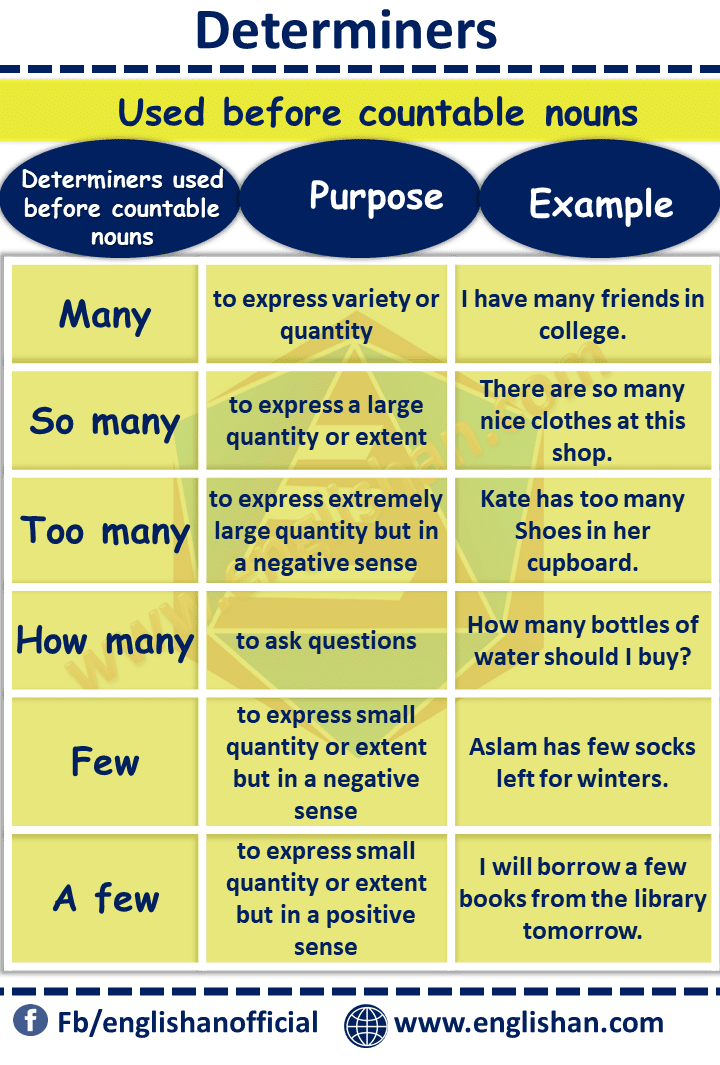
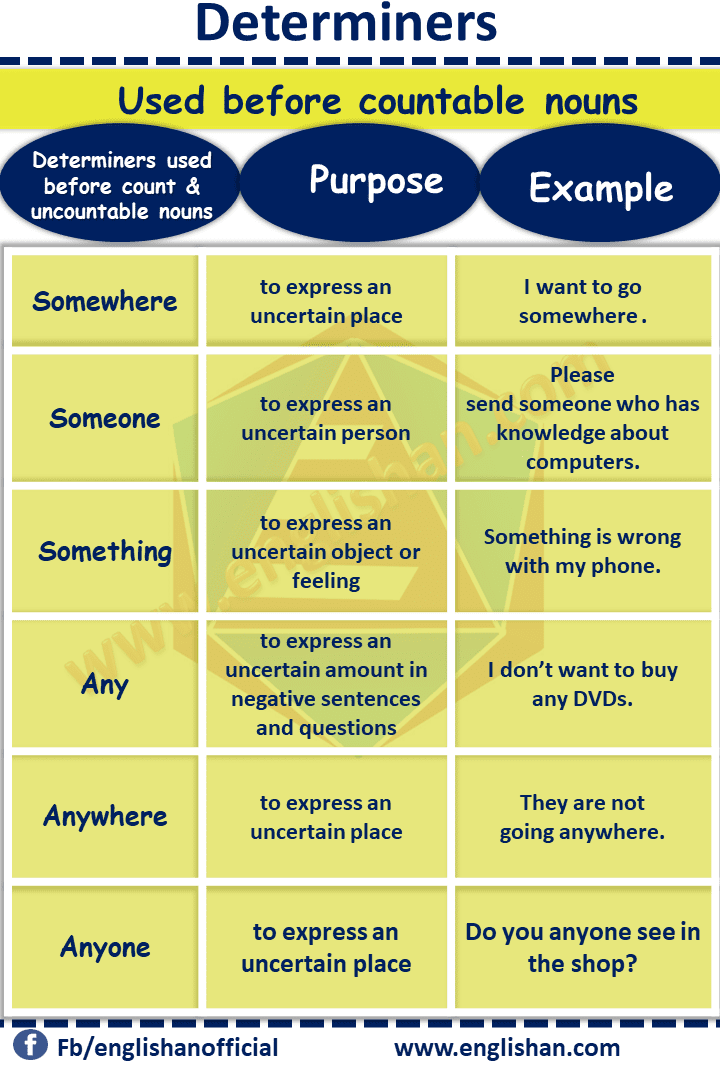
| Determiners used after countable nouns | Purpose | Example |
| Many | to express variety or quantity | I have many friends in college. |
| So many | to express a large quantity or extent | There are so many nice clothes at this shop. |
| Too many | to express extremely large quantity but in a negative sense | Kate has too manyShoes in her cupboard. |
| How many | to ask questions | How many bottles of water should I buy? |
| Few | to express small quantity or extent but in a negative sense | Aslam has few socks left for winters. |
| A few | to express small quantity or extent but in a positive sense | I will borrow a few books from the library tomorrow. |
| Much | to express variety or quantity mostly in negative sentences | I don’t know much about physics. |
| So much | to express a large quantity or extent | Thank you for showing so much faith in me. |
| Too much | to express extremely large quantity but in a negative sense | John shows too much leniency with the kids. |
| How much | to ask questions | How much sugar do you take in your tea? |
| Little | to express small quantity or extent but in a negative sense | I have little hope of winning the race tonight. |
| A Little | to express small quantity or extent but in a positive sense | We will have a little juice at the restaurant. |
| Determiners used before countable nouns and uncountable nouns | Purpose | Example |
| Somewhere | to express an uncertain place | I want to go somewhere peaceful |
| Someone | to express an uncertain person | Please send someone who has knowledge about computers. |
| Something | to express an uncertain object or feeling | Something is wrong with my phone. |
| Any | to express an uncertain amount in negative sentences and questions | I don’t want to buy any DVDs. |
| Anywhere | to express an uncertain place | They are not going anywhere tonight. |
List of 50 common Determiners:
- the
- a
- an
- this
- that
- these
- those
- my
- your
- his
- her
- its
- our
- their
- some
- any
- someone
- few
- several
- all
- both
- each
- every
- either
- neither
- another
- several
- some
- few
- many
- much
- most
- enough
- little
- a little
- something
- plenty of
- more
- less
- least
- several
- no
- none
- enough
- such
- what
- which
- whose
- whatever
- whichever
FAQs
Determiner is a word that describes or modifies the noun. It’s often placed before the noun and gives us additional information about it.
Determiners are classified into four main types namely;
Articles (a, an, the)
Demonstratives (this, that, these, those)
Possessives (my, your, his, her, its, our, their)
Distributive (each, every)
Quantifiers(some, any, many, few, several, much, little)
Interrogative determiners are words that help us ask questions about nouns, like “which” for choosing, “what” for seeking information, and “whose” for ownership.
I saw a bird in a tree.
That book was quite interesting.
My favorite color is blue.
Some people prefer tea over coffee.
Both children are very creative.
Do you have any spare pens?
She has such a lovely voice.
You May Also Like
